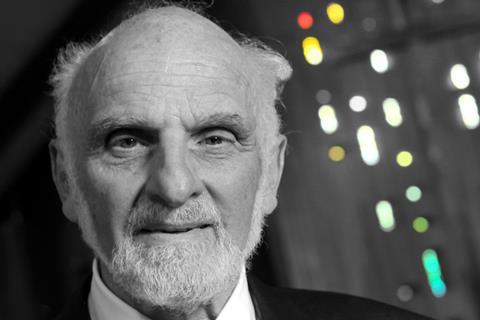Walter Brueggemann was one of the most influential theologians of his generation. Through his prolific writing and prophetic insight, this American scholar invited the Church to see scripture with fresh eyes, says Lee Camp

Professor Walter Brueggemann, widely considered to be one of the leading theologians of the 20th century, has passed peacefully at the age of 92.
I, along with many others, have been fondly remembering the occasions I was privileged to spend with him. He was a guest on our ‘No Small Endeavour’ podcast where he spoke eloquently about his ideas, and honestly about the challenge of living up to them.
Brueggemann was one of the most celebrated and productive biblical scholars of his generation. A prolific author, he wrote more than 100 books which helped shaped how countless pastors, theologians, and laypeople engaged with the scriptures.
His best known and most groundbreaking book was entitled The Prophetic Imagination, which sold over 1 million copies. Here, Brueggemann insisted that the biblical tradition of the prophets depicted both sharp, incisive social critique on the one hand and a beautiful, compelling imagination of new possibilities on the other. In place of the oppression, greed, and injustice, systematised by various imperialist forces, the prophets imagined the seemingly impossible possibilities of compassion, kindness and justice.
They imagined a world not run by visions of scarcity, which legitimates the powerful, piling up greater wealth for themselves at the expense of those without, but a world enlivened by a shared abundance and plenty.
One of his classic critiques was indicting the prevailing totalising vision of our own day, that increasingly brooks no descent, which claims increasing control even over our imagination. And yet he also continues to point us toward new possibilities.
Like the Hebrew prophets whom he spent a career studying and interpreting, he never flinched at indicting communal injustices or voicing searing critique of our paltry collective imagination. As he told me, “My judgment is that we now live in the United States in a totalism of market ideology in which nothing is imaginable outside the reach of the market.”
And yet he always held that a new imagination, through the grace of God, was possible.
The bestselling nature of The Prophetic Imagination makes him exceptional among theologians (most academics aren’t able to reach 1 million book sales). But more than selling lots of books is the kind of message he articulated: provocative yet hopeful, devastating in its critiques, yet always winsomely inviting us to imagine a better world. To dare imagine a better world, and then seek to live it, by God’s grace, into existence.
But what so impressed me about Walter Brueggemann on each of the few occasions I had opportunity to spend with him was his insistence that his own words interrogate his own life and work too.
For his work and witness, his scholarship and his good cheer, his words and his laughter, we give thanks and we bear witness that God did indeed employ well and beautifully a man like Walter Brueggemann.
Hear more from Walter Brueggemann on the ‘No Small Endeavor’ podcast. See nosmallendeavor.com for more information


































No comments yet